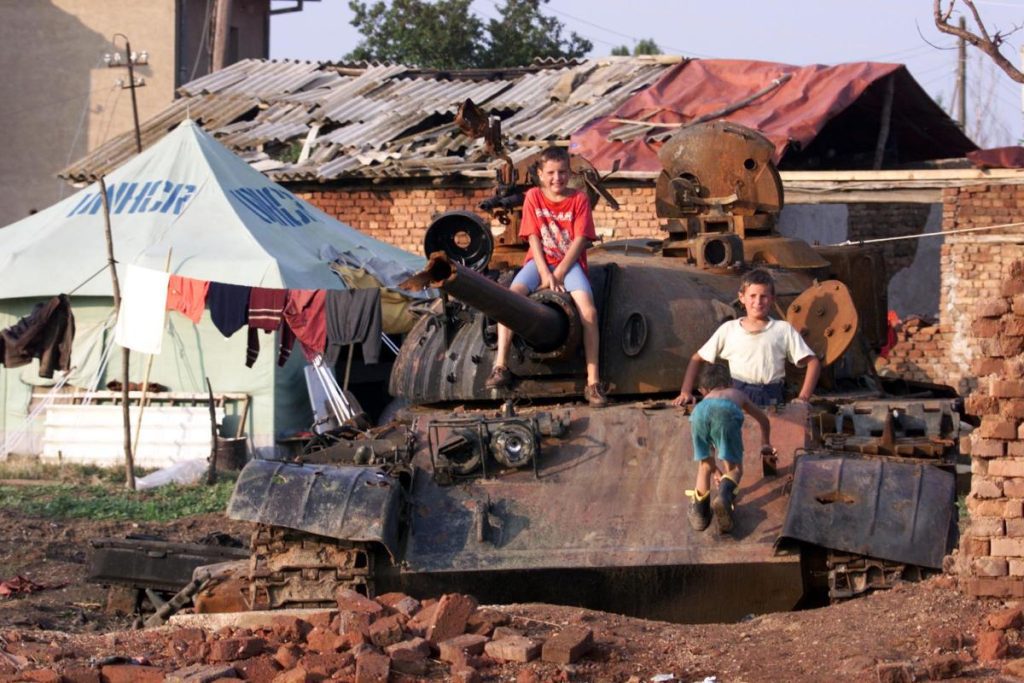On the evening of March 24, 1999, NATO commenced an air campaign that would significantly alter the course of Kosovo’s history. This intervention, unfolding over 78 days, was initiated in response to a deepening humanitarian crisis and aimed at compelling the Federal Republic of Yugoslavia to cease its repression in Kosovo. The operation was marked by strategic airstrikes against Yugoslav military and infrastructure targets across Serbia, Montenegro, and Kosovo, aiming to degrade military capabilities and force a resolution to the conflict.
The campaign began with the sound of sirens in Belgrade, quickly followed by the first airstrikes, including a powerful explosion at the “Lola Utva” aircraft factory in Pancevo. This initial strike set the tone for a series of operations targeting military bases, communication and command centers, and infrastructure critical to the Yugoslav military’s operations. Notable strikes included the disruption of the Serbian electrical grid, significant damage to military facilities in Belgrade, and the targeting of oil refineries and storage facilities to cripple the Yugoslav military’s logistics.
The decision to commence the air campaign came after intense deliberation within NATO and was marked by opposition from Russia and China. Led by then-Secretary-General Javier Solana and ordered by president Bill Clinton, the action was taken without United Nations Security Council approval, following Yugoslav President Slobodan Milosevic’s refusal to engage in political solutions for the Kosovo crisis. The intervention’s immediate effect was felt across the region, with visible destruction of military assets, including damaged aircraft visible in the aftermath of the bombings.
Following 78 days of relentless airstrikes, the campaign concluded with the adoption of UN Security Council Resolution 1244 on June 10, 1999. This resolution marked the beginning of a new era for Kosovo, leading to the withdrawal of Yugoslav forces and the establishment of the United Nations Interim Administration Mission in Kosovo (UNMIK). The deployment of the NATO-led Kosovo Force (KFOR) followed, ensuring the region’s security and aiding in the peaceful transition.
The intervention’s aftermath paved the way for Kosovo’s declaration of independence on February 17, 2008. Since then, Kosovo has been recognized by 117 countries, including all G7 nations, affirming its sovereignty and place within the international community.








